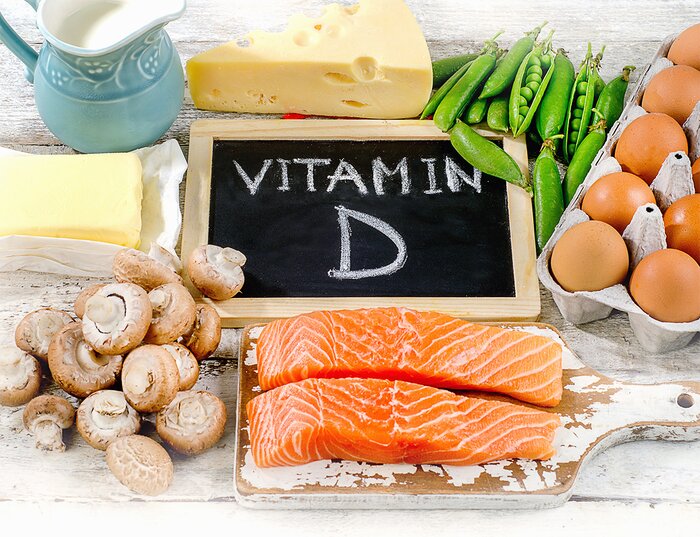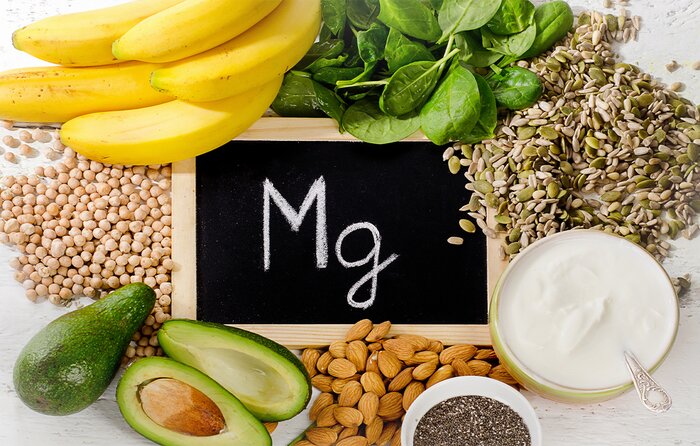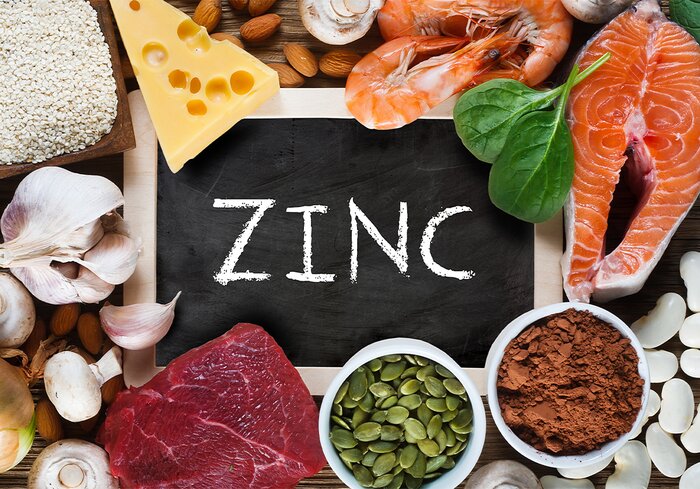Supplements for Every Body | Are You Deficient in Vitamin A or D? | Get Micronutrients from Food Scraps | How Micros Impact Performance | Greens Supplements | Immune-Boosting Supplements
Over the past several years, knowing and tracking your macronutrients—or ”macros”—has become a staple of gym culture. Except for those moments when they briefly make the headlines, vitamins and minerals—aka ”micronutrients”—don’t get nearly the day-to-day attention they deserve. Plenty of lifters and athletes who know their daily macros to the gram have no clue as to whether they’re even getting adequate amounts of vitamins, minerals, and essential fatty acids in their daily diet.
You may think you’re exempt from it, but you’re not. Approximately one-third of the U.S. population is at risk of at least one vitamin or mineral deficiency, with many experiencing multiple deficiencies at once. Not only can a vitamin deficiency put you at higher risk for developing health issues, it can seriously impact your sports performance.
Let’s look at five common essential micronutrients—vitamins D and E, omega-3 fatty acids, magnesium, and zinc—and discuss why they’re essential, how to recognize a deficiency, and the best recommendations to make sure you’re getting a full dose.
1. Vitamin D
Vitamin D deficiency is a big problem, with 93 percent of U.S. adults 19 years or older getting less than the estimated average requirement (EAR) set by the Institute of Medicine. Blame all that time you spend inside on the treadmill instead of getting your cardio outside!

Why It Matters to You: You may associate vitamin D deficiency with so-called ”seasonal effective disorder,” but it can express in physical ways as well as mental. It’s been linked with obesity in a number of studies, for one. But muscle weakness and bone pain are both potential symptoms with vitamin D deficiency, and improving vitamin D status through supplementation has been shown to increase muscle strength in trained athletes.*
Recommendations: Supplement with vitamin D in the range of 2,000-4,000 IU to ensure adequate levels, and take it with magnesium to increase absorption. Direct sunlight also activates vitamin D synthesis in skin, but people with darker complexions and those who live in the northern latitudes typically do not produce enough.
2. Vitamin E
Being clinically diagnosed with a vitamin E deficiency is rare outside of developing countries, but that doesn’t mean it’s not worth having on your nutritional radar. Vitamin E is involved in plenty of crucial bodily processes such as cell signaling, gene expression, blood pressure, and immune health. But it’s also a factor in muscle and strength.*
Why It Matters to You: Vitamin E is known to help the body retain muscle mass, particularly during intense endurance exercise. Predictably, then, two of the common symptoms of severe deficiency are muscle weakness and loss of muscle mass.*
Recommendations: Old-school bodybuilders were known to super-dose vitamin E capsules, but for most of us, that’s not going to be necessary. You can probably get enough calories from healthy fats and ensure adequate vitamin E simply by emphasizing nuts, nut butters, seeds, and vegetable oils (like coconut and canola) as part of your daily diet. If you think you’re at risk for a deficiency, vitamin E softgels of up to 1,000 milligrams have been shown to be safe for adults.
3. Omega-3 Fatty Acids
According to the Dietary Guidelines Advisory Committee, inadequate intake of omega-3 fatty acids affects 70 percent of the adult U.S. population. The global stats are even worse. Essential fatty acids are an integral part of cell membranes and help regulate blood lipids, clotting, and vasodilation. Omega-3 fatty acids are highly concentrated in the brain and affect cognitive and behavioral function. But yes, they also affect your training and physique goals.*
Why It Matters to You: Omega-3s also play a role in body composition, helping the body to use carbohydrates more efficiently for energy and building muscle. They can also help your body respond to exercise by getting stronger, leaner, more conditioned—all the things exercise is supposed to do.*
Interestingly, eight weeks of omega-3 supplementation (4 grams per day) has been shown to increase lean mass by reducing cortisol and enhancing protein synthesis (muscle growth) by up to 30 percent via the mTOR pathway.*
Recommendation: Aim to get two servings of fatty fish per week, or supplement with at least 1,000 milligrams of high-quality fish oil containing at least 300 milligrams of DHA plus 200 milligrams of EPA. In the article, “Start Here: The Most Important Supplements for Every Body,” supplement expert Chris Lockwood puts the bar to aim for even higher: 2.8 grams per day of combined EPA and DHA, in about a 1.75:1 ratio of EPA to DHA. Vegans can use algae oil.
EPA and DHA are two omega-3 fatty acids that have been studied extensively for their role in cardiovascular health, as well as eye, brain, and skin health.
4. Magnesium
Magnesium is fourth in common deficiencies, with 54 percent of U.S. adults getting less than the Estimated Average Requirement (EAR). Given that there are over 300 magnesium-dependent enzymes in the body, controlling everything from blood pressure and blood sugar levels to muscle and nerve function, that’s worth paying attention to! And because magnesium deficiencies keep you from absorbing vitamin D properly, you’re set up for a double deficiency.*

Why it Matters to You: Magnesium is essential in the process of muscle contraction, and studies have associated having adequate magnesium to both overall strength and muscle function. As Mandy Wray explains in ”Your Expert Guide to Magnesium,” this mineral can also help you stay regular, maintain electrolyte balance, and improve sleep quality.*
Recommendation: Magnesium is rapidly becoming a ”Why would you not take it?” supplement. For most people, a magnesium supplement or a dose of ZMA, which is zinc and magnesium together, at 200-300 milligrams per day is sufficient.
Don’t let stress sabotage your gains. Magnesium and other essential micronutrients can help you get to sleep faster, stay asleep longer, and help combat stress.*
5. Zinc
Zinc may not be making headlines like, say, vitamin D, but it should be of particular concern to athletes for one reason: it’s primarily lost through sweat. In other words, the more you train and the harder you train, the more likely you are to be deficient.

Why it matters to you: As Nick Coker explains in ”Your Expert Guide to Zinc,” zinc helps maintain healthy testosterone levels in men. This is one reason why you’ll often find it included in the best testosterone-booster supplements. It’s also a major player in immune system health, which is of particular concern to hard training athletes who don’t want to miss training or competition.*
One more reason to care about zinc: low levels can result in low thyroid hormone levels, which can lead to weight gain.*
Recommendation: Eating shellfish, meat, beans, and seeds can help you get adequate zinc from your diet. Zinc supplements usually add another 30 milligrams or so, which is sufficient for the vast majority of people. You can take zinc on its own or alongside magnesium in a ZMA supplement.
*These statements have not been evaluated by the Food and Drug Administration. This product is not intended to diagnose, treat, cure, or prevent any disease.
